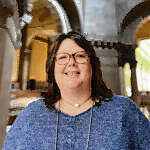Next week, from Sept. 25 through Oct. 1, people who are passionate about autonomy, reading and books will observe Banned Books Week. The week is sponsored by a variety of organizations, including the American Library Association and the American Booksellers Association.
Banned Books Week is an annual event that features discussions in communities throughout the United States. The first Banned Books Week started in 1982 as an effort to raise awareness about an increase in the number of suppressed books. Librarians wanted to discuss the threats to our choices in reading. This year, the week will be celebrating diversity. The discussions will explore how and why writers from diverse backgrounds have faced an inordinate degree of censorship.
I wish that banning books was a relic from the puritanical past or a trope from science fiction. Unfortunately, the American Library Association reports that over 11,300 books have been banned or challenged since 1982.
Books, especially controversial ones, are vital to our society. We need books to debate issues. Books go beyond soundbites. They present more evidence than television or our sources from the internet. They are more thoughtful and incisive. They appeal to our intellect as well as our emotions. We need to understand people outside of our ideology. We need to consider other points. Only then can we have positive change.
Throughout history, communities have banned books for a variety of reasons. Society has condemned books that feature sexual content, coarse language or religious themes. They have banned books with political ideas that challenged the mainstream ideology or dominant power structures. Schools, libraries and communities have also suppressed books by authors due to those writers’ political beliefs.
Books have changed and enriched my life. I know that I am not alone. They have presented me with ideas, solace and inspiration. Controversial books may be even more important than the more pedestrian and tame. If it is something that we all agree with, than why say or write it?
I could fill this column with the names of authors whose books have been banned or challenged. Books by luminaries such as Truman Capote, Dashiell Hammett, Norman Mailer, Toni Morrison, John Steinbeck and Ernest Hemingway have all been banned at some time or another.
Some of my favorite books have been banned or censored. Those books had the nerve to tell me that I was wrong. They challenged my comfort level or ideology. They told me that others saw the world differently. I do not have a monopoly on the truth. I have not always agreed with an author. But I am comfortable in disagreement.
I may not agree with a book’s content. As a matter of taste, I may not like it. I might find the author unappealing. But disagreeing with content or the point of view of an author is a far cry from censorship.
I think that many efforts to ban books backfire anyway. Knowing that something is perceived as dangerous or controversial often makes it more exciting and appealing.
As a part of Banned Books Week, the University Library of Columbus will be sponsoring a panel discussion from noon to 1 p.m. Tuesday in Room 1620 of the Columbus Learning Center. I hope you can pack a lunch, come to campus and join the conversation about censorship.
Aaron Miller is one of The Republic’s community columnists and all opinions expressed are those of the writer. He has a doctorate in history and is an associate professor of history at Ivy Tech Community College — Columbus. Send comments to [email protected].




